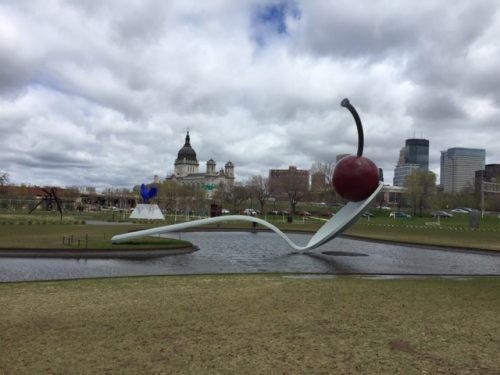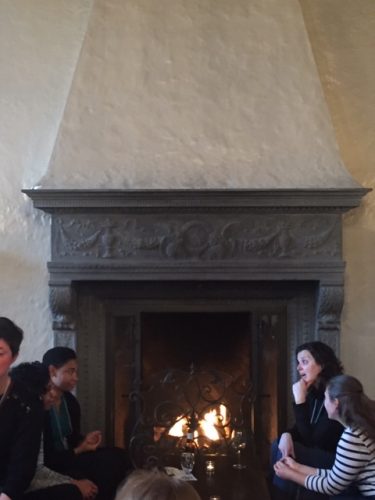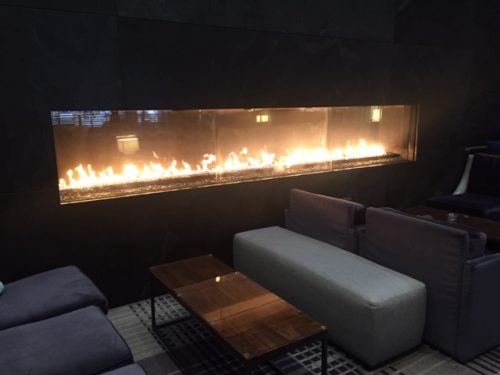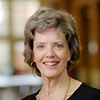This article is more than 5 years old.

It has been several years since I have written a LOEX Conference reflection without co-authors, and I will begin by saying that I seriously missed having other ZSR Instruction Librarians with me at this conference! LOEX is the premier information literacy conference for librarians, and this year’s conference was a another stellar experience. The theme for this year’s conference was “Up North: Reflect, Reconnect, Renew” and it took place in beautiful Minneapolis, Minnesota. For the people of Minnesota, going “Up North” refers to summer days spent at one of the state’s northern 10,000 lakes staying at a cabin, canoeing during the day, and spending the evening around a campfire. When I was there, the temperatures never got out of the 40s, so I imagine this scenario must take place sometime in June or July.

The Conference kicked off on Thursday evening with an hors d’oeuvres reception at the Woman’s Club of Minneapolis which was about a mile from the hotel. It was the best location for a LOEX reception that I’ve ever experienced. The building was constructed in 1928 and is a magnificent six-story Italianate mansion filled with ornate antique furnishings. One of the servers told me that they have a knitting group that has met for over 100 consecutive years. It was a space that naturally sparked conversation which was exactly the purpose of the event. There were 425 attendees at this conference from 40 states and countries such as Hong Kong and Norway, so it did not take much effort to meet some truly interesting like-minded librarians.
The plenary speaker on Friday morning was Sara Zettervall, founding consultant for Whole Person Librarianship which works to form library-social work collaborations. Some of you may already be familiar with this idea, but it was new to me and therefore very interesting even though I do not see this as an applicable model for Wake Forest University. This is becoming a trend in public libraries and has several models that include the libraries hiring social workers, or working with local institutions to provide internships for social workers. This model is being picked up by some community colleges and other academic libraries with certain populations. She coined this as “whole-person” librarianship, which challenges what most of us include in our concepts of information literacy. She said, “Relationships are the new Reference Collection” and before you go and share that, please note that she has trademarked that phrase!
One of the things that was different about this year’s conference was that none of breakout sessions were geared specifically for credit-bearing courses. The vast majority of LOEX attendees teach one-shots, and almost every librarian I spoke with was amazed that we have such a successful credit-bearing program that is not a required course. It was worth going all the way to Minneapolis just to gain a new appreciation for my job!

With more than 60 breakout sessions from which to choose, there were many excellent opportunities for learning. Most of the session Powerpoints and Handouts can be found by clicking here.
One of my favorite breakout sessions was by Gary Arave from Indiana University who talked about “Teaching Contextual Evaluation of Information Sources.” – (Presentation here). I see this a lot in my own classes, when students scan materials from articles to cite and do not consider the sources in a more holistic way. He argued that the CRAAP test fails to address context and ignores the context in which the student is currently working. We worked through a couple of exercises in the session that can be used to address this problem.
Another interesting session was “Motivating Students to Change their Research Behaviors.” (Presentation here) by Sarah Fancher and Jamie Emery. Did you know that 78-84% of undergraduate students rely on Internet resources almost exclusively? Did you know that when you do a Google search you are only looking at 4% of the content on the Web and that the other 96% includes academic databases, medical records, financial records, etc.? Where would you go to find out how many immigrants come into the U.S. each year? These presenters said that students need the “Why” before you describe the “How” which is so true! I plan to spend some time reading Motivating Students on a Time Budget by Sarah Steiner and Miriam Rigby which is a new ACRL book that they recommended.
Another interesting session was Indiana University Kokomo’s presentation of the 2017 American Association of State Colleges and Universities national initiative (DigiPo) to confront digital polarization and improve civic discourse by developing web literacy skills in college undergraduates. – (Presentation here) The presenters included an English professor, a Political Science professor, and two librarians. They used a technique referred to as “Four Moves and a Habit” across the curriculum to help students evaluate sources. I suggest you look at the presentation to see the chart they use and some of the sources they evaluated using this method. Hu and Roz, this may be another tool for your Fake News course!
One of the highlights of the Conference, was attending the Friday night dine around at a local restaurant. We had 12 librarians in our group and we were from libraries across the country. Our host who is on the committee and works at Carleton was by far the best host I’ve ever had for LOEX dine around. She helped us get to know one another and she made it so much fun!
I am grateful for the opportunity to attend LOEX 2019! All of the flights were on time and the public transportation in the area was unsurpassed. I took the train and then a free bus from the airport to the hotel and back for $2 each way! If you are in the area, plan to spend time at the Minneapolis Institute of Art, the Minneapolis Sculpture Garden and the Walker Art Center.

10 Comments on ‘LOEX 2019 Minneapolis, Minnesota, May 9-11, 2019’
I’m so interested in your experience at LOEX. It sounds really on point for instruction librarians! Thank you for sharing your knowledge. I’m sure your Lib 100 students will benefit!
Thanks for spreading the good read. My daughter is interested in attending Carleton. Nice to know they can be gracious hostesses/hosts.
Thanks for reading the post, Mary Beth! And Travis, if your daughter goes to Carleton, she must meet Iris Jastram who is a reference librarian. By the way, best wishes with your college search–there are so many great choices out there.
Sounds like it was a wonderful LOEX, Joy! I’m sad I missed it this year! 🙂
Sounds like you had another great LOEX, Joy! Happy you were able to go.
I’m wishing there was a good book about motivating adults on a time budget. Sounds like you learned a lot! I love learning about aspects of librarianship that I might never need alongside things I know I can implement, and I’m glad LOEX provided both to you!
Sounds like you met a lot of interesting people and learned a lot!
Joy, thanks for this thoughtful post! I’ll be checking out ‘four moves and a habit” to apply to our fake news class! -Thanks!
Thank you for sharing Joy! I’ll definitely check out the presentations you referenced.
Joy, I am glad that all of your LOEX travel went safely and smoothly this time! Sounds like Minneapolis is a great place for a conference (in the summer, at least!)